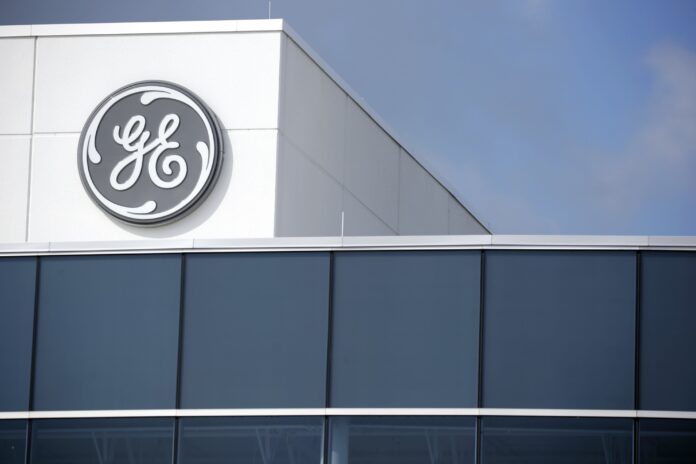
NEW YORK – General Electric Co. surged after the manufacturer raised its 2019 cash-flow forecast for the second straight quarter, giving CEO Larry Culp’s turnaround effort a much-needed boost.
The industrial businesses will generate as much as $2 billion in free cash this year, GE said Wednesday as it reported third-quarter earnings. The company previously projected no more than $1 billion in cash flow.
The revised forecast bolsters “another quarter of progress” as GE also works to improve operations and bring down debt, Culp said. That came despite headwinds from tariffs and a cash strain on the jet-engine business from the grounding of Boeing Co.’s 737 Max.
“There’s still a lot to do, it is a reset year,” he said in an interview. “But net-net, we’re pretty encouraged.”
The new cash projection, with a midpoint above Wall Street’s expectation, offers a measure of relief on one of the thorniest issues facing the Boston-based company. Investors have been bracing for weak cash flow this year while looking for signs of a promised 2020 rebound, as Culp tries to extract GE from one of the worst slumps in the company’s 127-year history.
The shares jumped 7% to $9.71 before regular trading Wednesday in New York. GE advanced 25% this year through Tuesday, compared with a 23% gain in the S&P 500 index of industrial stocks.
“I feel better today than I did a year ago when I walked in,” said Culp, who celebrated his first anniversary as CEO this month.
Profit rise
Third-quarter adjusted earnings rose to 15 cents a share, GE said, topping the 12-cent average of analysts’ estimates compiled by Bloomberg. Sales were little changed at $23.4 billion, while analysts predicted $28.8 billion.
Unadjusted, the company reported a $9.4 billion loss for the quarter, compared with a $22.9 billion loss one year prior. Loss per diluted share for the quarter were $1.08, compared with $2.62 in the third quarter of 2018.
The industrial businesses generated $650 million in adjusted free cash flow, one of the most closely watched metrics for GE investors. While that was down from a year earlier, the latest results marked the first positive performance this year and topped expectations.
“At the margin, most of the news is in line or notably better than expected,” said Nicholas Heymann, an analyst with William Blair & Co. “There’s not a lot to complain about.”
The report may quiet lingering questions after financial investigator Harry Markopolos accused GE of accounting fraud in August. Markopolos has largely retreated from the public eye since alleging GE’s financial state was worse than widely known, claims the company has denied.
Revenue rose 8.4% at GE Aviation even as the business faced challenges related to various Boeing aircraft. The division makes engines for the 737 Max, which has been grounded since March following two fatal crashes. Culp has said GE faces a cash headwind of $400 million a quarter as long as the jet is out of service. GE also supplies the 777X, the debut of which will be delayed because of an engine problem.
Power struggles
The power-equipment unit, a major concern for shareholders, struggled with a 30% decline in orders. Still, Culp noted that profit margins rose substantially for the division. Fixing the ailing business has been a high priority since Culp took the top job at GE in October 2018.
GE said it would take a pretax premium deficiency charge of $1 billion related to its insurance business, primarily due to a decline in interest rates. The company also took a goodwill impairment charge of $740 million against its hydro operations.
Adjusted earnings didn’t account for an $8.7 billion non-cash expense related to the sale of part of GE’s stake in oilfield-services company Baker Hughes. GE had previously disclosed that it would take a writedown as a result of the sale, which brought its ownership level below 50%.
On a non-adjusted basis, GE’s net loss attributable to common shareholders was $9.5 billion in the third quarter.
Richard Clough is a reporter for Bloomberg News.












